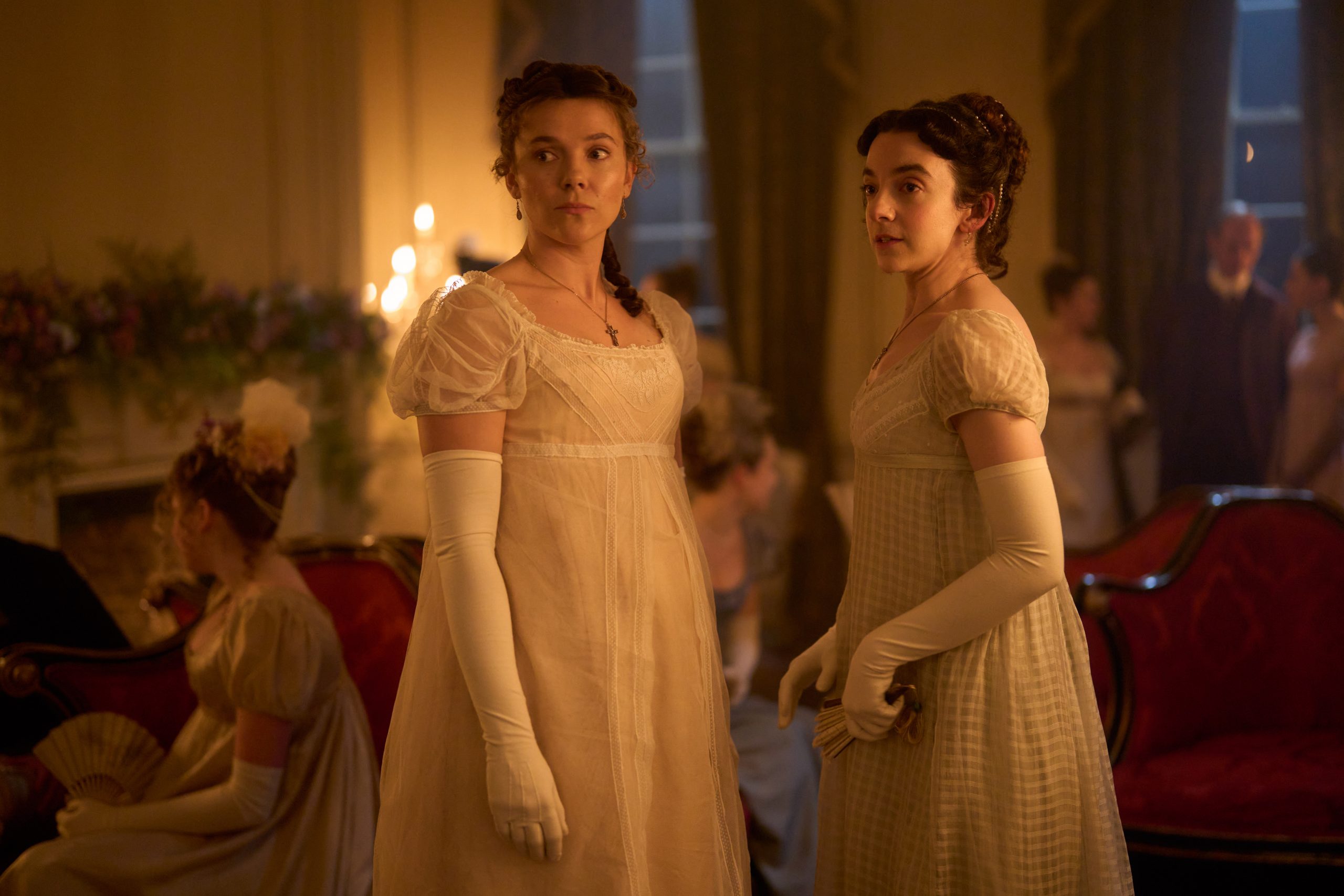No novelist in the English language is more closely associated with the marriage plot than Jane Austen. That literary trope turned rom-com convention gives structure to all six of her masterworks—which goes to show that the romance genre, far from mere escapism, can be an ideal lens through which to observe a society’s values. But another truth universally acknowledged about Austen complicates the happy weddings that conclude each book: The author never married. She spared her heroines the social and financial precarity she suffered.
The realities of single womanhood in Regency England, and for the Austen family in particular, are at the center of Miss Austen, a four-part BBC adaptation of Gill Hornby’s 2020 novel that will premiere stateside May 4 on PBS’s Masterpiece. Set more than a decade after Jane’s untimely death, this bit of historical fiction follows her beloved older (and only) sister, Cassandra, sensitively portrayed by executive producer Keeley Hawes, and imagines the circumstances that led her to destroy thousands of the author’s personal letters. Its primary characters are unmarried women. If you can get past the mannered stiffness typical of Masterpiece fare, it loosens up as it evolves into a perceptive and affectionate portrait of the kind of life Austen lived but barely wrote about.
Solitary in middle age, Hawes’ Cassandra—also never married—is roused from a cozy routine of talking to goats and reading in bed when a letter arrives informing her of a family friend’s imminent death. Against the advice of her correspondent, she hastens to Fulwar Fowle’s (Felix Scott) bedside. Cassandra has a history with the Fowles; she was betrothed to Fulwar’s brother Tom (played in flashbacks by Calam Lynch) before he died on an expedition to the West Indies. But it isn’t sentimentality, for the most part, that motivates her to make the trip. “There are certain items there of a personal nature that belong here,” she tells the servant seeing her off. Namely, the letters Jane wrote to Fulwar’s late wife, Eliza, a close friend of the Austen girls.
Of course she finds them, and the letters transport her back to the girls’ youth, with the young Cassandra played by Synnøve Karlsen and Jane by a wonderfully animated Patsy Ferran, reviving precious memories but also revealing the author’s unvarnished thoughts about her sister’s choices. There are perhaps too many costume-drama boilerplate shots of Hawes gazing tearily at yellowed sheets of stationary. But they’re worth it as a conduit to Cassandra’s and Jane’s 20s, a period when both women fielded suitors; the younger Austen grew into her voice as a writer, thanks in part to the encouragement of the elder; and each emerged as the most important person in the other’s life. What seems to wound the grown-up Cassandra most, in the letters, is Jane’s frustration at her sister’s rejection of a love match worthy of Pride and Prejudice. “She chose insecurity,” Jane writes to Eliza. “I did it for you, too,” Cassandra murmurs, half a lifetime later. Would we even know the name Jane Austen if she hadn’t taken such good care of the vivacious but also fragile, depressive writer in life and her work in death?
Elsewhere at the Fowles’ home, Kintbury, Mary Austen (Jessica Hynes), the haughty widow of Cassandra’s brother James, is bustling around with notions of commissioning a joint biography of Jane and her late husband—whose undistinguished poetry she prefers to Jane’s already-renowned prose. And in the wake of Fulwar’s death, his conscientious daughter Isabella (Rose Leslie) is preparing the residence for the arrival of a replacement vicar (Thomas Coombes’ lightly ridiculous Mr. Dundas), as she looks ahead to her own uncertain future. Cassandra has promised Fulwar that she’ll set her up with one of his other two daughters, but neither situation seems ideal. (One bizarre Fowle sister is a highlight of the show.) She also notices romantic tension between Isabella and the local doctor, Mr. Lidderdale (Alfred Enoch).
With its contrived conclusion, the latter storyline puts a somewhat ill-fitting bow on the series. What lingers after its giddiness dissipates are the experiences of so many single women, some widowed, others never married. Isabella’s unceremonious ejection from the home where she grew up. Mary’s fixation on commemorating James’ dubious talents. The genuine bond between Isabella and her servant, Dinah (Mirren Mack). The adversity Cassandra, Jane, and their mother face after the Austen patriarch’s death. Jane’s inability to accept a loveless marriage that would finance a high lifestyle but rob her of time to write. Cassandra’s lifelong protection of Jane—a devotion so fierce, in Hornby’s scenario, it drives her to destroy thousands of pages of writing by one of the greatest authors who ever walked the earth. Austen’s marriage plots reward her righteous heroines, granting them love and companionship they crave as well as wealth and respectability they need in a society that places too much value on superficial things. Particularly in chronicling the sacrifices Cassandra happily made for Jane, Miss Austen suggests that there was always more than one way for a woman to lead a fulfilling life.

